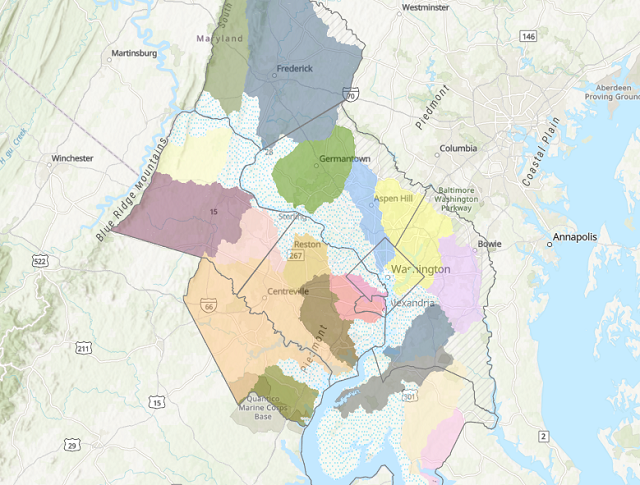Unity. Interconnection. Collaboration.
For area officials, these are core principles that guide our regional work at the Metropolitan Washington Council of Governments (COG), particularly its Chesapeake Bay and Water Resources Policy Committee (CBPC), of which I am chair. They also happen to be the very timely themes of this year’s Chesapeake Bay Awareness Week.
While this week is an opportunity to take a moment to reflect on how our waterways connect us, it’s also a time for leaders, even those working on Bay issues, to consider how we can do better. The events of the past few weeks have strongly reminded us that we need to be thinking more about how we can improve our pursuit of our core principles. We need to think through how we can better ensure the Bay’s incredible environmental, economic, and recreational benefits are accessible to all.
First, we know that healthier rivers contribute to a healthier Bay and in turn contribute to healthier communities for all.
Over the years, the region’s local governments have made substantial investments, like wastewater treatment innovations, resulting in major water quality improvements in our area waterways.
Through COG’s CBPC we will continue to bring the area’s leaders together to explore new ways to support Bay health and the Chesapeake Bay Program, supported by data analysis, regulatory advice, and partnership.
There has been great progress, but we recognize the only way to fully care for and revitalize our local waterways—like the Anacostia, the Potomac, the Occoquan, and the Patuxent—and the Bay is through expanded collaboration, greater understanding, and breaking down the barriers that divide us—including racial injustice and inequity—until everyone is pulling in the same direction toward the same goals.

MORE: Explore a map of the region's major watersheds
In our work for the Bay, it’s time to strengthen our partnerships with local communities and recommit ourselves to equity. We must create space for people from historically underrepresented communities to partner with us. We must listen more. We must learn differently.
For example, agriculture has cross-cutting ties to increasingly vital regional issues that are disproportionately affecting our region—challenges like food supply resiliency, food security, climate change, and clean water. For this reason, CBPC is part of an Ag Task Force at COG. Just last week, the Task Force invited local leaders to advise on strategies for how equity can guide food system investments for a more resilient recovery post-COVID-19. In the coming year, the Ag Task Force will ensure that equity remains a key focus in a new committee tasked with strengthening the region's food and agricultural economy.
The CBPC held our inaugural Paper Competition this year asking students to offer practical, science-based solutions that local governments can implement. We must do more to engage our future leaders—and new and differing voices—in topics like water quality, urban agriculture, and tree and forest conservation that would have a direct impact in our region and on the Bay.
These actions are just a start. During Bay Awareness Week, let’s reflect on how much more we can do together as water utilities, businesses, farmers, citizens, and local, state, and federal governments to ensure the health of our waterways and the Bay.
It’s equally important for us as leaders to embrace the important conversations that are happening with and around us regarding equity, and act intentionally to address this in our planning for the watershed and region moving forward.
Jon Stehle is a Fairfax City Councilmember and COG’s Chesapeake Bay and Water Resources Policy Committee Chair.